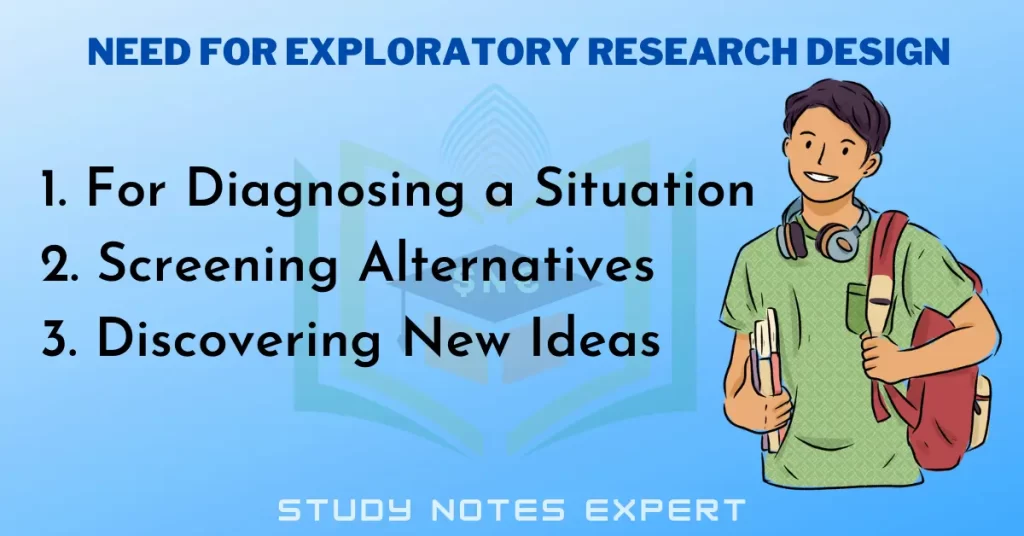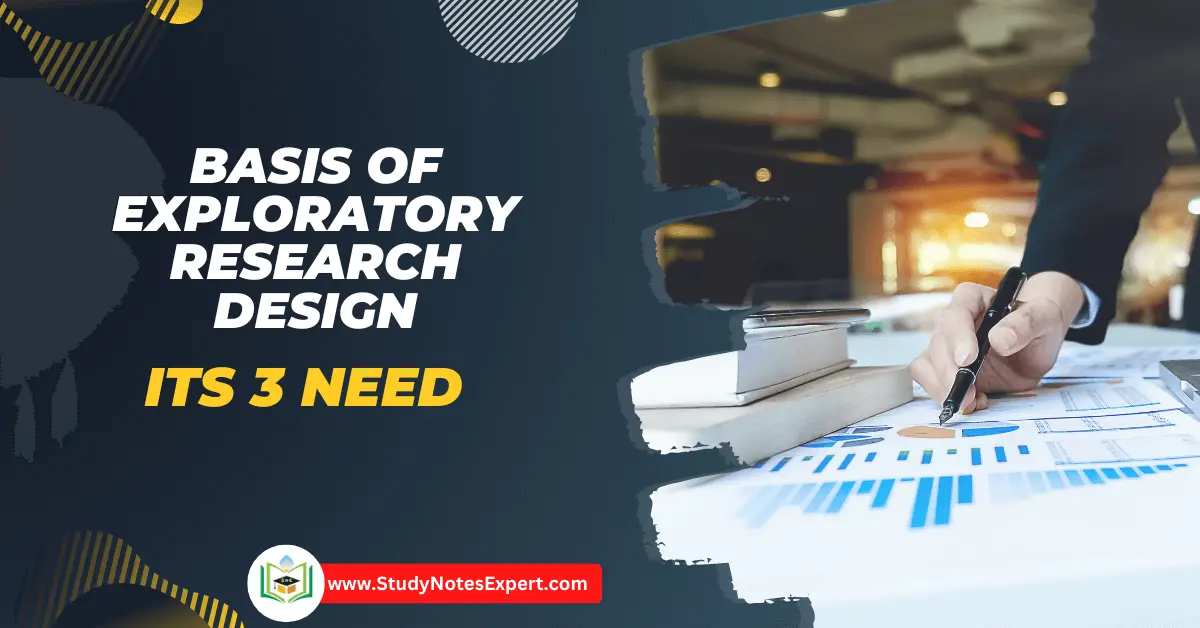Exploratory research is a helpful first step that ensures a more thorough, more conclusive future study won’t start with an inadequate understanding of the nature of the management problem when a researcher has little expertise or knowledge of a research issue. The researcher would focus on learning more about the specific findings in later conclusive investigations due to the findings discovered through exploratory research. Conclusive research provides the facts needed to choose a course of action. Exploratory research design never has this as one of its objectives.
Meaning of Exploratory Design
Exploratory research often, but only sometimes, yield qualitative information. Exploratory research typically yields qualitative information. Instead of giving accurate measurements, exploratory research typically increases comprehension of a subject or clarifies a situation. Although a researcher may look for data to show economic trends, no formal mathematical analysis is carried out. Any information source can be systematically studied to determine which traits or qualities are connected to a piece of art, a situation, or an issue.
Exploratory research can consist of a formal study or a series of unofficial studies to gather background data. The majority of exploratory research needs to be more quantitative. Alternatively, quantitative research aims to quantify a phenomenon by determining its size or scope. While selecting the information sources to be looked into, researchers must exercise creativity. They must be adaptable enough to look into cheap resources that offer information to aid problem understanding. Researchers must be careful and systematic when creating exploratory research investigations, even though they must be flexible. The majority of the methods covered in this chapter involve drawbacks. Researchers should clearly understand the proper and improper use of the various methodologies.
Why We Need to Conduct Exploratory Research Design?

The need for a precise and clear characterization of the identified problem is interwoven with the goal of exploratory research. There are three interconnected types of exploratory research:
1. For Diagnosing a Situation
A lot has already been said about the importance of situation analysis in determining the exact nature of a problem. Exploratory research aids in problem-dimension diagnosis so that subsequent research efforts are focused. It aids in establishing research priorities. By acquiring data on a subject that management is unfamiliar with, exploratory research design can occasionally give management direction. Even when a study project has not been planned, it is necessary to know the problem before developing the best course of action.
Managers of personnel research frequently use exploratory research design as a diagnostic technique to identify issues that affect employees or to generate explanations for motivational patterns. For instance, preliminary interviews with employees may be used to learn about current “hot” issues as well as concerns about practical matters like pay, working conditions, career chances, and the like.
2. Screening Alternatives
Exploratory research may be utilized to choose the best option when multiple opportunities present themselves, but the budget prevents looking into every potential course of action. Because a business decided to invest in something better, many suitable investments have yet to materialize. It has been discovered that some new organizational systems need to be more attainable. An alternate product may not be practicable because the market is too large, according to an exploratory analysis of market data. Although this part of exploratory research design is not a replacement for a definitive study, it is possible to gather some evaluation data from exploratory studies.
One common justification for conducting exploratory research design is the requirement for concept testing. Idea testing is a catch-all phrase for various research techniques with a common goal. It describes research techniques that examine a stimulus in place of a brand-new or updated program, sound, or service. Usually, test volunteers are given a concept and asked if they like it, along with other questions. Before investing in manufacturing, research and development, or other firm resources, concept testing gives potential ideas a “feel” for their viability. To prevent future issues in business research, researchers look for warning signs of danger in concept evaluations.
Concept testing can show a proposed product’s purposes, applications, and potential scenarios. For instance, Del Monte tested the notion of shelf-stable yoghurt on consumers to see if they would like it. Because a poll revealed that consumers disagreed with the idea that yoghurt might be stored initially without refrigeration, the plan was abandoned. Early studies suggested that such an idea was considered distinctive and desirable, but the cost of establishing believability was ultimately determined to be expensive.
In other instances, where participants have voiced concerns about specific components of the theory, but the overall concept has yet to be adversely rated, researchers are aware that the theory needs to be improved. The intangibles that affect a brand’s reputation, a product’s name, price, and description simulate reality. Hence, the concept defining the brand’s character is communicated to the test subjects before actual product production.
3. Discovering New Ideas
New ideas are frequently generated through exploratory study. Factory workers may have ideas to boost output or enhance security. Customers may suggest new product ideas, or previously unidentified issues may be found.
For instance, a car manufacturer might employ computerized design software adapted from programs used by automotive designers to let drivers construct the cars of their dreams on video screens. The concepts generated by this exploratory research design are ones the firm’s design personnel would have yet to consider.
1. What is Exploratory Research Design and Why is it Important?
Exploratory studies design is a research methodology used to gain insights, discover new ideas, and expand deeper information on a particular difficulty or phenomenon. Its flexible and unstructured nature characterizes it, allowing researchers to explore numerous elements without predetermined hypotheses.
Exploratory research layout is crucial for numerous reasons:
1. It helps in producing new hypotheses and study questions.
2. It provides a foundation for future studies.
3. It assists in figuring out and defining studies issues.
2. When is Exploratory Research Design Used?
Exploratory studies layout is normally used when very little preceding research exists on a specific topic or while the topic is complex and requires in-depth research. It is normally hired inside the early stages of a study’s task to collect preliminary data and tell the development of an extra targeted research approach.

